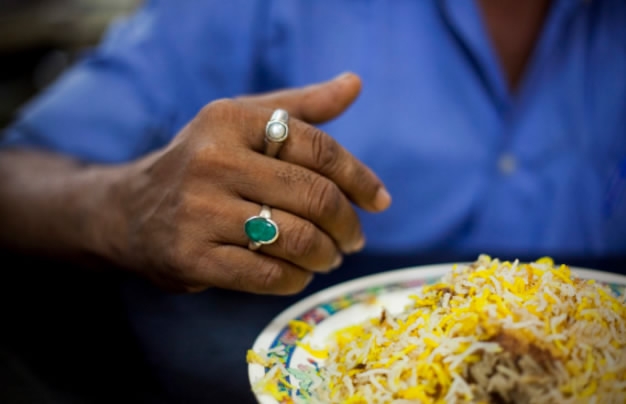
Culture & Sports
16:55, 08-Aug-2017
Cultural Faux Pas every traveler should know

"Travel is fatal to prejudice, bigotry, and narrow-mindedness, and many of our people need it sorely on these accounts." --Mark Twain
The Chinese Embassy in Germany revealed on Tuesday that two Chinese tourists who had been arrested after performing Nazi salutes in Berlin over the weekend had left the country without further punishment. It is thought the two men in question were unaware that expressions of support for Nazi ideology are now banned in Germany.
But it's not only Germany that has laws and customs that unsuspecting tourists may fall foul of. With this in mind, CGTN brings you a selection of taboos from countries around the world, to help you avoid confusion or disrespect on your next trip.

VCG photo
VCG photo
Chewing gum – Singapore
Not only is it against the law to chew gum in Singapore, it's also forbidden to bring gum into the country, even by accident. The first-time penalty for selling gum can be as much as 100,000 US dollars, or a prison sentence of up to two years.
It is also common courtesy in Singapore not to litter, jaywalk, or spit, though there is no actual law against these actions.

Reuters photo
Reuters photo
Insulting the Royal family – Thailand
If you have a negative opinion of a country's leadership, its usually best to keep it to yourself for fear of upsetting or offending others. However, in Thailand, it has been a federal offence since 1908, making it even more important not to say anything that could be construed as anti-monarchy.
Just in June this year, a Thai man was sentenced to 35 years in jail after being found guilty of defaming the country's royal family on Facebook. This is reported to be the longest ever sentence for breaking Thailand's lese-majesty laws.

Reuters photo
Reuters photo
Alcohol – Saudi Arabia
Alcohol is generally forbidden in Muslim countries and Saudi Arabia is top of the list of countries where it is hard to find alcohol. People in Saudi Arabia are strictly prohibited from drinking, producing, trading and smuggling alcohol. Anyone caught violating this law may even be on the receiving end of a death sentence.
Foreign visitors are also advised to be extremely cautious regarding this sensitive subject, and it is easiest simply to abstain from alcoholic drinks when visiting Saudi Arabia.

VCG photo
VCG photo
Flowers as a gift – various countries
While it is often customary to give flowers as a gift, it's important to pay attention to their variety and color depending on what country you are in. Don't take carnations to a dinner party in Germany, Poland or Sweden, as they are used for funerals in these countries.
Similarly, the same warning could be applied to chrysanthemums in Belgium, Italy, France, Spain and Turkey.
And take note of the quantity of flowers you're giving, too. An even number of flowers is considered unlucky in India, Turkey, Russia and Germany.

Reuters photo
Reuters photo
Eating with left hands – various countries
Never touch or eat food with your left hand when visiting Muslim or Hindu countries, as the left hands was historically used for cleaning oneself after a trip to the restroom. Handshaking and eating is always done with the right hand.

VCG photo
VCG photo
Chopsticks placed upright in rice bowl – Asia
When taking a break from munching on your bowl of rice in Asia, it would be advisable not to place your chopsticks upright in the bowl. Doing so is thought to resemble the joss sticks often seen in funerals across the continent.

AFP photo
AFP photo
Smoking – Bhutan
The tiny Himalayan nation of Bhutan has the world's strictest anti-tobacco legislation, which forbids the sale or smuggling of tobacco into the country, and hands out jail sentences of up to three years to anyone caught smoking in a restricted area.
While it's legal for residents and tourists over 18 to buy cigarettes outside Bhutan, any tobacco brought into the country incurs a 100-200% import duty.

SITEMAP
Copyright © 2018 CGTN. Beijing ICP prepared NO.16065310-3
Copyright © 2018 CGTN. Beijing ICP prepared NO.16065310-3